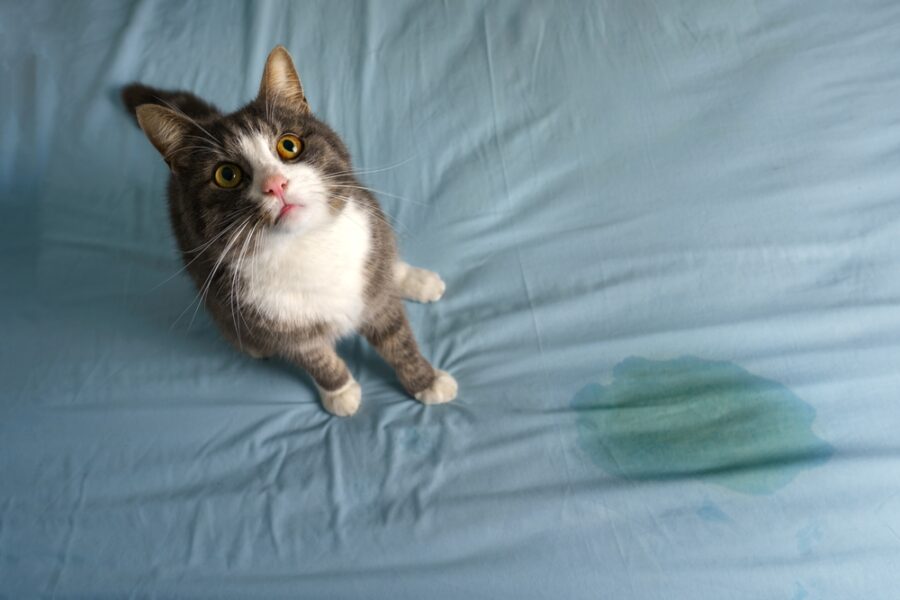Are you tired of finding unpleasant surprises from your feline friend outside the litter box? Don’t worry, you’re not alone. Many cat owners face this issue at some point, and it can be quite frustrating. But why do cats pee outside the litter box? Let’s delve into the top six reasons that might be behind this behavior.
1. Medical Issues
Before jumping to conclusions, it’s crucial to consider your cat’s health. Certain medical conditions can cause cats to avoid the litter box. These include urinary tract infections, kidney problems, diabetes, bladder stones, and even arthritis or mobility issues. So, if your cat suddenly starts peeing outside the box, it’s essential to consult with a veterinarian to rule out any underlying medical issues.
2. Litter Box Problems and Aversion
Sometimes, cats simply refuse to use their litter box due to certain factors. Cats are clean creatures and might avoid a dirty or smelly litter box. Additionally, they may dislike the type of litter, the size of the box, or even the location. Cats can develop an aversion to the litter box if they’ve had a negative experience with it in the past. Ensuring the litter box is kept clean and addressing any aversions can help resolve this issue.
3. Territorial Marking and Spraying
Cats have a natural instinct to mark their territory, and sometimes, they choose to do so outside the litter box. Male cats, especially if they’re intact, are more prone to spraying. Cats may also spray if they feel threatened by other animals or if there have been significant changes in their environment. Understanding and addressing these territorial behaviors can help prevent inappropriate urination.
4. Stress or Anxiety
Just like humans, cats can experience stress and anxiety. Changes in the household, such as moving, introducing new companion animals, or even new family members, can trigger stress in cats. Consequently, they may start peeing outside the litter box. Even small changes like a new scent or a rearranged living room can disrupt their routine and lead to inappropriate elimination. Creating a calm and stable environment for your cat can help alleviate stress-related urination issues.
5. Age
As cats age, they may develop cognitive decline or physical limitations that make it difficult for them to consistently use the litter box. Older cats might experience pain or have mobility issues, preventing them from reaching the litter box in time. If you notice your senior cat peeing near the litter box, it could indicate their efforts to use the right spot but struggling due to age-related challenges. Providing additional assistance and comfort can greatly help older cats.
6. Inappropriate Cleaning Products
When accidents happen, it’s essential to clean up properly. However, be cautious about the cleaning products you use. Strong-smelling or ammonia-based cleaners can leave behind residual odors that might encourage your cat to pee in that spot again. This creates a cycle of inappropriate elimination. Opt for pet-friendly and odor-neutralizing cleaning products to break this cycle effectively.
Remember, if your cat consistently pees outside the litter box, consulting with a veterinarian is crucial to rule out any underlying medical issues. Additionally, ensuring a clean, accessible, and appropriately located litter box with suitable litter is vital for encouraging proper litter box use.
